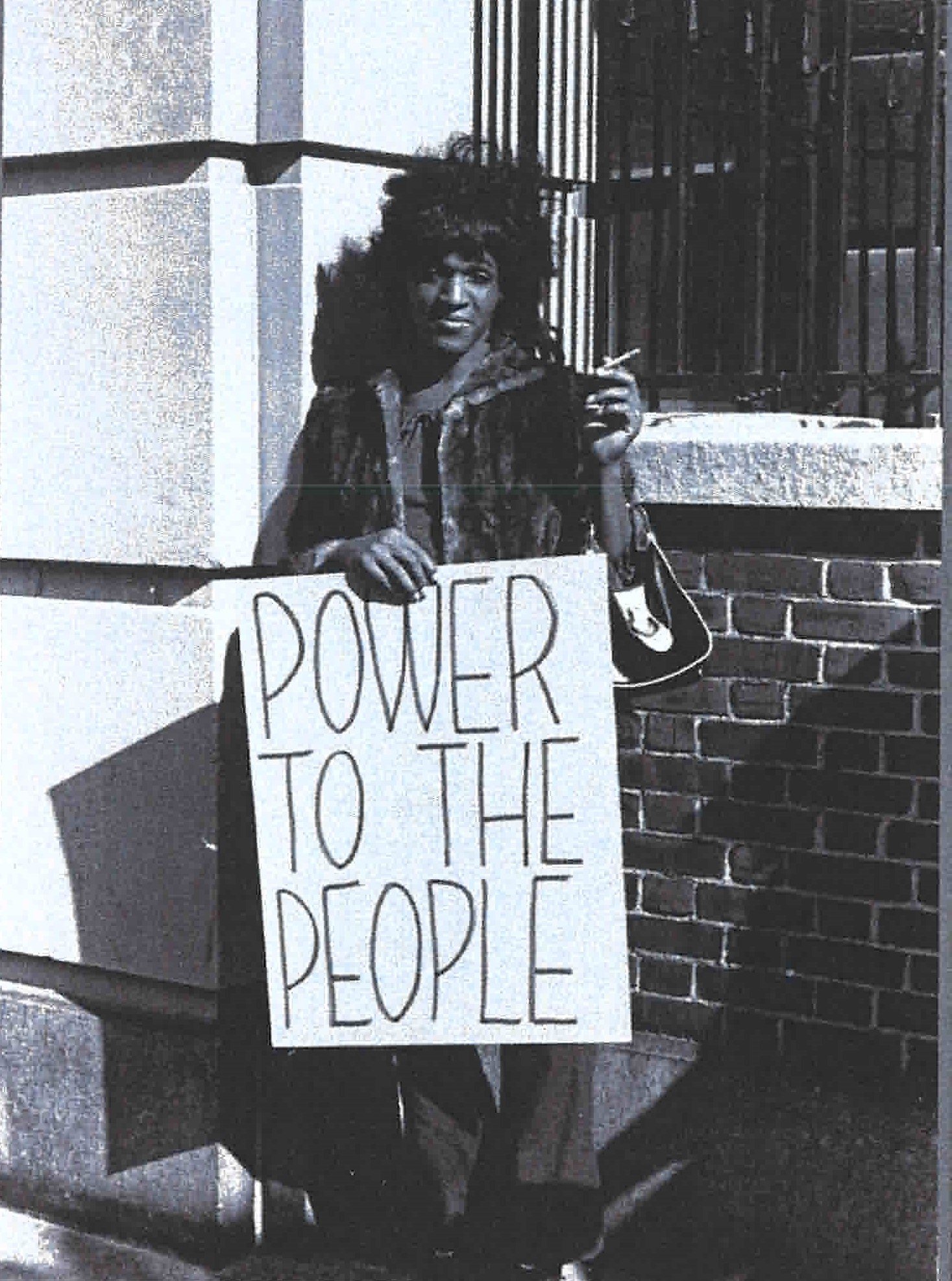The motivation for this blog was to celebrate gay rights activist Marsha P. Johnson’s influence on New York City history using materials from the Municipal Archives collections. Marsha P. Johnson was a black transgender sex worker and gay rights activist who rose to fame in the 1960s and 1970s. Considering all the lives she touched and the park and statues recently dedicated to her, it seemed reasonable to assume that her name would appear throughout the Archives. But diligent research in property, prosecution, and park documents failed to result in documentation. However, ripples and echoes of Johnson's actions did appear in the Handschu series, one of the most important collections for researching activism in New York City.
Marsha P. Johnson pickets Bellevue Hospital to protest treatment of street people and gays, ca. 1968. Manuscripts and Archives Division, The New York Public Library. Digital Collections.
The “Handschu” series is formally known as the New York Police Department Intelligence Division records collection. It contains more than 2,500 files on groups and organizations that operated between the 1940s-1970s. The files were created by the Bureau of Special Services, a unit within the NYPD Intelligence Division that conducted investigations on groups both on the right and left of the political spectrum. The records had been transferred from the New York Police Department to comply with the ruling of Handschu et. al. vs. Special Services Division (1986).
The first step in researching activism in the Handschu Collection is to identify dates of known protests and the names of relevant individuals and organizations. Marsha P. Johnson was a founding member of both the Gay Liberation Front (GLF) and the Street Transvestite Action Revolutionaries (STAR). According to the collection inventory, the GLF and Gay Activist Alliance are each represented with an individual folder in Series IV: Small Organizations files. These folders in turn were found to contain two index cards referencing several folders within the 1969, 1970, and 1971 Communication files series.
Despite careful searching in the references, Marsha P. Johnson was never listed by name. Sometimes archives have gaps—perhaps due to collection policies or institutional prejudices against marginalized history—but often it is just that the documentation simply doesn't exist. Currently, the Handschu collection is not fully processed (i.e. not fully reviewed or arranged), which means Marsha P. Johnson may still be represented in other parts of the collection.
Although Johnson’s name did not appear on any document, her work was well evident in the collection.
Communication file on a demonstration by the Gay Liberation Front at NYU and Bellevue, 1970. While this document does not include Johnson by name, there is evidence she had been protesting Bellevue Hospital as shown by the above image from the NYPL digital collections. NYPD Intelligence Division Records, NYC Municipal Archives.
STAR members protesting conditions in the Manhattan Mens House of Detention, better known as “the Tombs,” 1971. NYPD Intelligence Division Records, NYC Municipal Archives.
The Handschu collection contains records documenting the demands that gay activists, like Johnson, presented to the city including flyers used to call new activists to demonstrations and protests. The exact routes taken by protesters were recorded by the very organization they were protesting. Even the messages written on the flyers and protest signs are documented by the police who conducted the surveillance.
This is what makes the Handschu collection a wonderful tool for research—lots of little pieces waiting for someone to apply context and build a larger picture.
There’s a complicated relationship between activists such as Marsha P. Johnson and the NYPD, which is why thinking about these materials as tiny bits of a bigger picture is important. Without the dedicated work of independent organizations and archivists, the larger context would be lost. If you are interested in learning about the history of activism in New York City, the Handschu collection could have exactly what you need, as long as you know to look for it.


